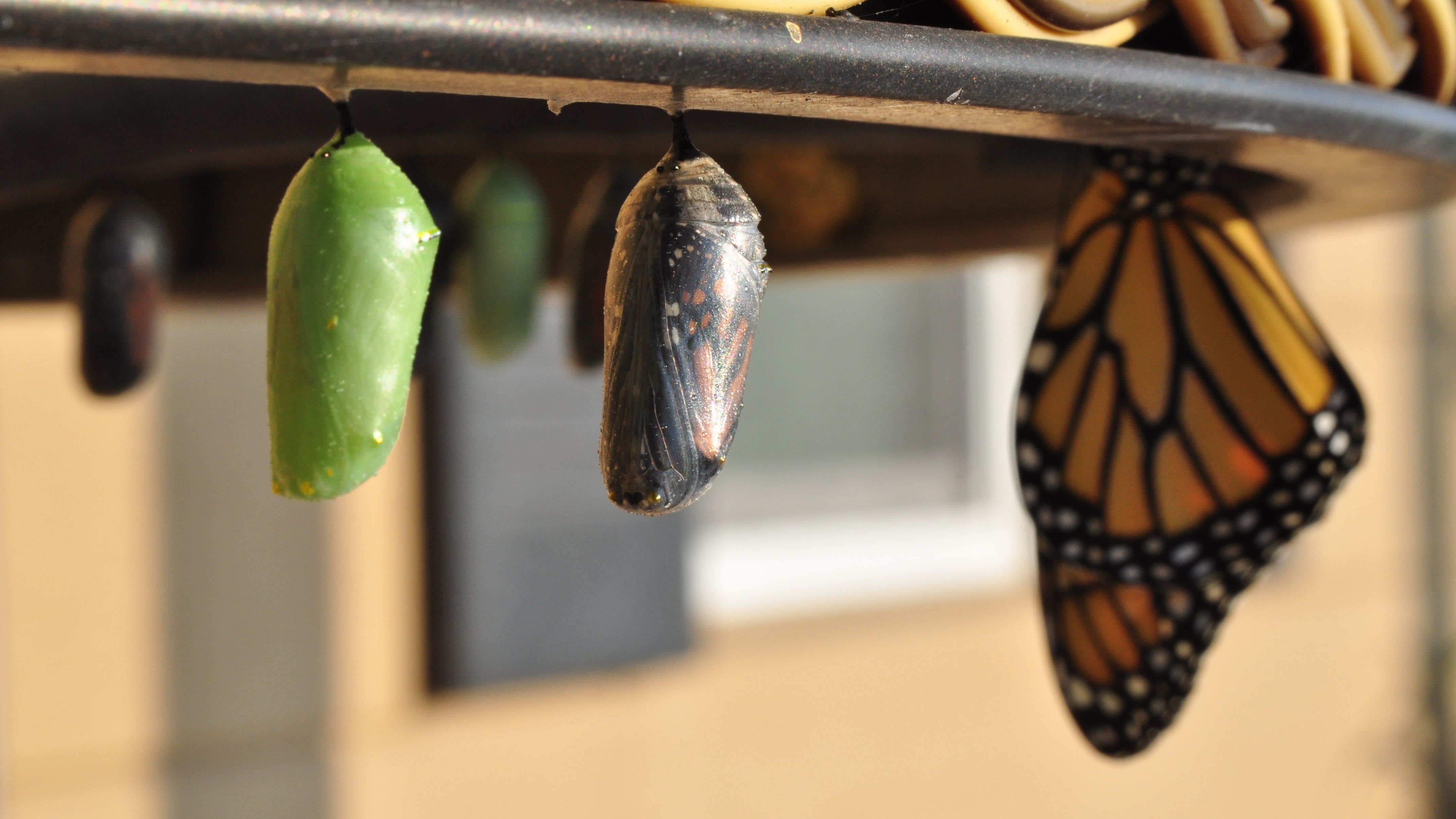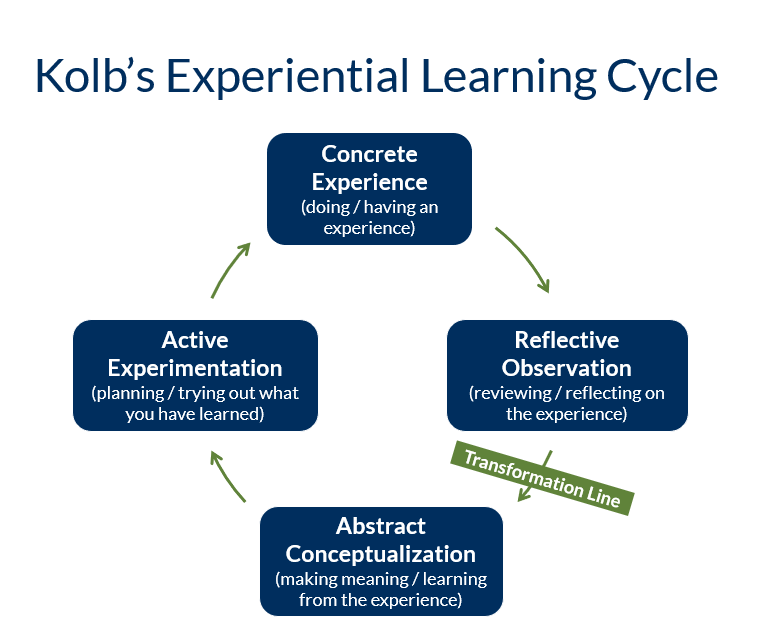
Experiential Learning Theory (ELT) is a useful pedagogy for fostering intercultural learning. It’s one of several pedagogies that I use and teach in my trainings to help educators develop their own intercultural competence and their capacity to facilitate intercultural learning.
However, many people incorrectly assume that ELT simply involves making learning more experiential. In fact, ELT actually helps educators understand that experience alone doesn’t lead to learning.
While experience is a great opportunity for learning, one doesn’t just magically lead to the other. As organizational psychologist and educational theorist David Kolb explains, “Learning is the process whereby knowledge is created through the transformation of experience.” Having an experience is not enough. We need to do something to transform the experience into learning.
“Learning is the process whereby knowledge is created through the transformation of experience.”
- David Kolb
Kolb’s Experiential Learning Cycle provides a framework for exploring how to transform experience into learning. Kolb explains that there are multiple different ways of learning, and to learn fully and deeply from experience, we need to engage in all of them.

Adapted from Kolb, 1984.
Let’s examine these different ways of learning, starting at the top. Concrete Experience refers to doing something, or having an experience. Reflective Observation is about reflecting on or reviewing the experience. Abstract Conceptualization involves making meaning, or extracting learning from the experience. We might do this by considering how the experience relates to other experiences or connects to concepts and theories we’ve learned. Finally, Active Experimentation involves testing or applying what we’ve learned beyond that particular experience. When we do that, we have a new Concrete Experience, beginning the cycle again.
What’s really important here is that to learn deeply—to truly transform an experience into learning—we need to go all the way around this cycle. That is, we need to learn in ALL of these ways. In fact, Kolb says there is a transformation line between Reflective Observation and Abstract Conceptualization—if you don’t move beyond reflection, it’s doubtful the experience will transform into learning.
I’ve witnessed this a lot in higher education, especially the global education space. Many educators focus on providing great experiences—through study abroad, internships, practicums, virtual exchange or COIL projects, or in-class activities—then ask students to engage in some type of reflection—either through journaling, blogging, or similar—but stop there. They don’t push learners beyond reflection to draw meaning from their experiences. They miss the opportunity to help students make connections between their experiences and things they’re learning in the classroom. Or they don’t challenge students to take what they’ve learned and test it out or apply it in other situations.
To help students effectively and consistently transform their experiences into learning, educators need to think about designing and facilitating learning that goes all the way around the cycle. How do we help our students learn in all of these ways? We want to make sure students have significant experiences that they can learn from, but then also help them reflect on those experiences, draw meaning from them by making connections to concepts, theories, or other experiences, and then consider what they are going to do next or how they’ll apply their new learning.
Every time we go around the cycle, we bring to each new experience the increased knowledge and understanding gleaned from prior experiences. So, in a sense, the Experiential Learning Cycle well facilitated is more of an upward spiral than just a circle.
I encourage all educators to consider the experiential learning opportunities you’re creating and facilitating with your learners. Are you engaging students in all four ways of learning—Concrete Experience, Reflective Observation, Abstract Conceptualization, and Active Experimentation? Or do you tend to focus on some more than others? How could you better support learning all the way around the cycle? What more could you do to help your students transform their experiences into learning?
References & Resources
Kolb, D. A. (1984). Experiential learning: Experience as the source of learning and development. Upper Saddle River, NJ: Prentice Hall.
Harvey, T.A. (May 2019). Blog: The Art of Debriefing for Intercultural Learning
Photo credit: Suzanne D. Williams, Unsplash
Join the Conversation!
Enjoying the blog? You’re invited to join me and an amazing group of higher education professionals committed to fostering intercultural learning at the next Intercultural Leadership Forum! You'll have a chance to connect with others doing this work and gain new insights as you move toward your intercultural goals.


